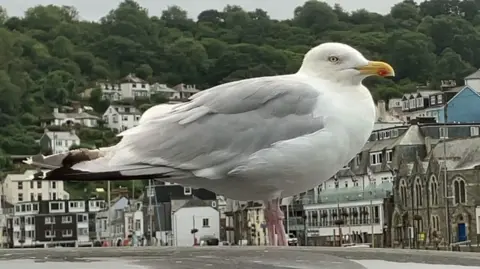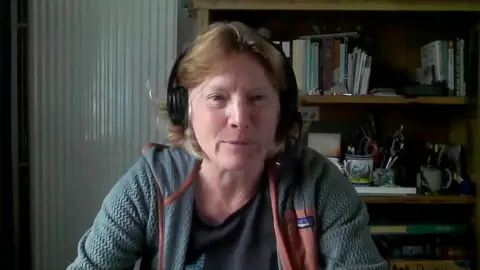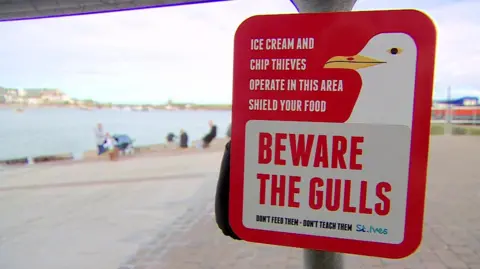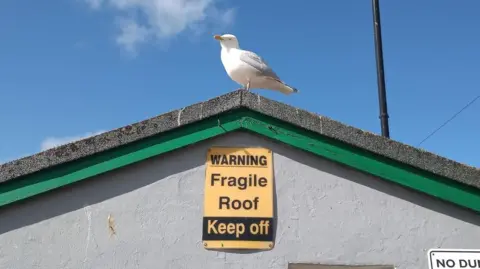Seagull species in serious decline, say experts
 BBC
BBCThey are the sound of our seaside, and can often be seen stealing a pasty, a sandwich or some chips.
Seagulls. But, love them or loathe them, they are in decline, according to wildlife experts.
While the birds may appear to be thriving, they are on the red list - the highest level - for British bird species of concern, because their population has dropped by 72% in 55 years.
Marine conservation officer at Cornwall Wildlife Trust, Rebecca Allen, said it was not just in Devon and Cornwall that pairs had decreased.
"The population has declined around Great Britain. It's nearly three-quarters decline, since 1969, so that’s quite serious," she said.
"It was about 200,000 breeding pairs... so that brings it down to about 50,000 breeding pairs."

This figure refers specifically to the herring gull – the most commonly found species around our coastlines – but other species are also struggling around the UK.
This includes the black-headed gull, common gull, Mediterranean gull, lesser black-backed gull, and great black-backed gull - which are all declining.
The decrease has been driven by the loss of nesting habitat and lack of food availability, according to the Royal Society for the Protection of Birds (RSPB).
The charity said: "Urgent action is needed to revive gulls’ natural habitats and our seas and help our globally important gull colonies and other seabirds recover.
"Nature is in crisis and finding ways to coexist together and restore nature at land and sea has never been more important."

So what can people do to help?
Firstly, they need to be aware seagulls are a protected species.
Cornwall Council said: "We would remind people that, like all other wild birds, gulls are protected under the Wildlife and Countryside Act 1981.
"That makes it an offence to intentionally injure or kill any gull, or to take, damage or destroy an active nest or its contents."
 BBC/Andrew Segal
BBC/Andrew SegalThe RSPB has also urged people to find ways to live alongside gulls, with minimal disturbance to and from gulls, offering the following advice:
- Gulls should not be fed by humans, as they are a resourceful species and are very capable of finding their own food
- People should dispose of rubbish properly so gulls are not able to access it
- People should eat next to a wall, so opportunistic gulls cannot fly behind them and take any food
- It is important to note that parent birds will protect their chicks, which can include swooping at humans if they believe their babies are at risk
Ms Allen added that in general seagulls do not attack people for food, and that only happens when they are nesting.
While there may be a love-hate relationship with seagulls, they are an integral part of the seaside, she said.
"How would you know you’re at the seaside if you couldn’t hear or see a seagull?
"The world would be a poorer place without them."
Follow BBC Devon on X (formerly Twitter), Facebook and Instagram. Send your story ideas to [email protected].
